MPHQ Graduate Exchanges
Below our PhD exchange students are reporting on their exchange experience to our partners at Harvard
Johannes Knörzer was awarded with the first MPHQ travelling grant and just completed his PhD Harvard exchange recently. He visited our partners in Harvard in April 2018
What was the most vital scientific added value you derived from the exchange?
What were the major scientific aspects of your research stay at Harvard Johannes?
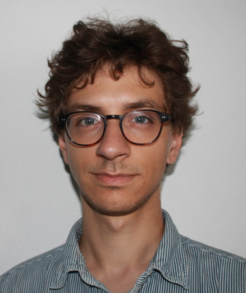
During my stay in Prof. Lukin’s research group, I’ve had the pleasure to learn about and discuss various aspects of the diverse research activities at Harvard. In stimulating discussions with Prof. Mikhail Lukin and his group members, I have received valuable input both from experimentalists and other theorists. In close collaboration with Prof. Lukin, his Post-Doc M. Schuetz (formerly at MPQ), and other group members, we have worked on and finalized a joint research project between the Cirac and Lukin groups investigating solid-state architectures for quantum simulation. Already in this short preliminary period, we have developed fresh ideas for new research projects on quantum technologies and platforms based on a novel class of atomically thin semiconductors.
What was the most vital scientific added value you derived from the exchange?
In numerous fruitful discussions and inspiring talks given by Harvard researchers and visiting scholars, I have been exposed to many different research directions and open problems in current quantum optics research. This is also thanks to a welcoming atmosphere and wide range of research topics covered at Harvard. Since many of the technologically most promising and relevant platforms for physical implementations of quantum science are present at Harvard and in the labs of the Lukin group, my research stay has not only provided me an excellent overview of state-of-the-art experiments in quantum optics and quantum-information science, but has also been extremely useful for my own research on novel implementations of quantum science.
How will the exchange enrich your scientific work at MPQ?
My visit has brought me in contact with exciting research and researchers, both in theory and experiment, and triggered new project ideas which we will continue working on in close collaboration with the Lukin research group. I’ve had the pleasure to make interesting new acquaintances with scientists from vastly different scientific backgrounds, illustrating the interdisciplinary character of a significant portion of the work carried out in quantum optics and, more general, in quantum science, which I find truly enriching.
Will your stay lead to any prospective collaborations or joint publications with the visited group(s) at Harvard?
Together with Prof. Lukin, members of the Lukin group, and my supervisor Prof. Cirac, we have initiated a collaborative research project, which we will continue to work on after my stay. The project lies at the heart of current 2D material research and technology and brings together the expertise from both groups at Harvard and MPQ.
What did you like the most about the exchange from a personal perspective?
From a personal perspective, I am most grateful for all of the pleasant encounters with interesting and kind people who conveyed to me the open research culture at Harvard. Also, in and around Cambridge and Boston, there are many regular cultural and sports events taking place; for Jazz enthusiasts like me, the daily concerts make the Cambridge area a true El Dorado.
______________________________________________________________
Please shortly describe the major scientific aspects of your research stay at Harvard?
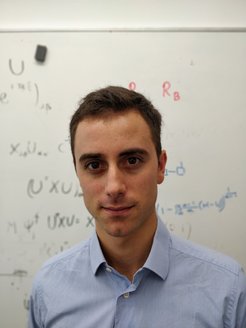
During my research visit at Harvard I had the opportunity to be in touch and to work side by side with some of the leading scientists in my field, such as Prof. Demler, Dr. Schmidt, Dr. Marino, Prof. Lukin and others. I enjoyed a very welcoming atmosphere where everybody is encouraged to share their ideas and their interests, our different scientific backgrounds were an asset rather than a disadvantage.
Visiting Prof. Demler’s group in particular gave me the chance to widely broaden my knowledge and to find unexpected applications of methods I have been developing in the past to problems in the forefront of research. Our focus was mainly on machine learning algorithms for the study of interacting electron systems. And the emergence of chaos in systems of interacting spins.
What was the most vital scientific added value you derived from the exchange?
In contact with such a dynamic research environment one can appreciate how ideas from different fields of physics and science can merge together and contribute to the scientific progress in a positive way. The tight collaboration among different groups at Harvard, such as Lukin’s and Demler’s groups, creates a fertile ground where abstract thinking, mathematical modeling and practical implementations grow and prosper. Within this community I learned to challenge myself to find novel applications to my work and to continuously strive against biases that someone might inherit from a unidirectional education.
How will the exchange enrich your scientific work at MPQ?
I came back to MPQ with several new projects which span from Quantum Machine Learning and Solid State Physics to Tensor Networks and Quantum Chaos. I am having an intense correspondence with people at Harvard, and we are already planning further visits in Cambridge and Munich.
Back at MPQ I noticed that many of the techniques I learned and developed at Harvard might be of interest for other people in my own group. I have already started to share them with my colleagues, and they seem very promising.
Will your stay lead to any prospective collaborations or joint publications with the visited group(s) at Harvard?
I am now in close connection with postdocs and professors both at MPQ and at Harvard in order to develop and finalize the research projects we started in Cambridge. Some of these collaborations involve Prof. Demler, also distinguished scholar at MPQ, Dr. Richard Schmidt, former postdoc at Harvard and now group leader at MPQ, Dr. Dries Sels and Dr. Jamir Marino, postdocs at Harvard. This experience was a unique opportunity to discuss ideas with several other people both at Harvard and MIT. The hope is that they will lead to successful research projects in a near future.
What did you like the most about the exchange from a personal perspective?
As it was my first long term visit in USA, I was both excited and afraid at the same time. I soon realized how easy it is to meet new people in Cambridge. I encountered many students and young researchers who share similar passions as I do. I was amazed by how easy it was to meet people who could entertain you with interesting conversations about law, neuroscience or engineering. In such a small town are concentrated some of the brightest minds in the planet. It makes no effort to meet famous scientists or nobel laureates when attending talks at Harvard or MIT.
Finally, a sport addict as I am could not enjoy more the incredible sport facilities that Harvard can offer. Swimming pools, tennis courts, gyms, football pitches are just a few examples.
______________________________________________________________
As part of the MPHQ PhD exchange program Joannis Koepsell visited the PIs Eugene Demler and Markus Greiner at Harvard for a duration of 2 weeks.
Please shortly describe the major scientific aspects of your research stay at Harvard?
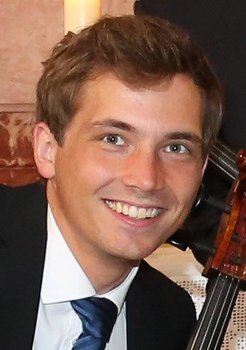
In the Fermi Gas Microscope laboratory of Prof. Immanuel Bloch at MPQ we experimentally explore the Fermi-Hubbard model. This model describes strongly-correlated electronic systems and is believed to capture essential aspects of high temperature superconductivity. The group of Prof. Eugene Demler at Harvard University develops new theoretical approaches to enable efficient numerical simulation in the doped regime. In the group of Prof. Markus Greiner a similar experimental setup to ours exists and their previous studies are closely related to our current research. During my stay I could benefit from many theoretical as well as technical discussions with experts in the same field of research.
What was the most vital scientific added value you derived from the exchange?
I enjoyed to spend time on extended and lively discussions on small details as well as on the big picture of our field of research. Also getting to know the broader atomic and optical research community at Harvard was a valuable experience. Having a look at the technical developments in the laboratories of Markus Greiner was also very inspiring.
How will the exchange enrich your scientific work at MPQ?
At that time, we were already involved in a collaboration with the group of Eugene Demler on magnetic polarons in the two-dimensional Fermi-Hubbard model. We could use the exchange to establish a more accurate comparison between numerical simulations of Fabian Grusdt and our experimental data. Our results are now submitted and available on the arXiv preprint-server.
Will your stay lead to any prospective collaborations or joint publications with the visited group(s) at Harvard?
The collaboration on magnetic polarons was submitted recently. During my stay I also met other theorists and experimentalists, which are tackling similar problems we are investigating back home at the Max-Planck-Institute. We are still in vivid contact and I hope that many new projects will benefit from the lively exchange with the Harvard community.
What did you like the most about the exchange from a personal perspective?
The open mindedness and motivating environment in the research community as well as the many new friends I made during this stay.
______________________________________________________________
Simon Hollerith from the Quantum Many Body Systems Division visited the labs of the MPHQ Co-director Markus Greiner for the duration of one week.
Please shortly describe the major scientific aspects of your research stay at Harvard?
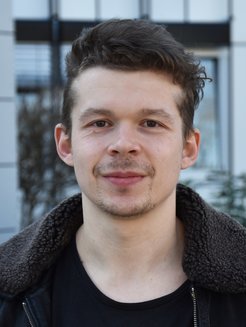
Because I was attending the DAMOP conference hold in Milwaukee, I took the opportunity to also visit Harvard the week before. During my stay, I gave a talk in front of the groups of Markus Greiner and Mikhail Lukin about our recent results and presented a poster of the work in a MPQ-Harvard meeting which took place during the same week. I had the opportunity to get extended lab tours in the Greiner group and had many discussions with the people, in particular with Julian Léonhard. Additionally, I was visiting the labs at MIT and Harvard and discussed with the PhD students and postdocs working in the labs.
What was the most vital scientific added value you derived from the exchange?
On the one hand it is a great opportunity to present one's own results in front of experts working in the same field. On the other hand, visiting the labs and attending the conference enlarged my overview of the research field in general. It was also very motivating to finally see many of the labs where the data presented in papers I read during the last years was produced.
How will the exchange enrich your scientific work at MPQ?
The discussions about the own research always triggers new ideas for future projects and helps to avoid wasting time with projects which cannot be successful.
Additionally, the labs in the Greiner group are technically very similar to the lab I am working in at MPQ. Discussing technical limitations and tricks is definitely helpful.
Will your stay lead to any prospective collaborations or joint publications with the visited group(s) at Harvard?
Even if the labs in the Greiner group are very similar from the technical side and also from the range of possible scientific projects, the topic of my PhD is currently not covered at Harvard. However, the discussions and the new contacts may trigger new projects in the future.
What did you like the most about the exchange from a personal perspective?
During my stay, I talked to many very motivated, friendly and open-minded scientists.
It was a great experience to meet so many people and discuss with them about their and my work and I am very thankful for that opportunity. During the evening, I was enjoying Boston by checking out different places by bike.
Annie Jihyun Park from the Quantum Many Body Physics division paid a short visit to the Harvard labs of John Doyle, Markus Greiner and Mikhail Lukin.
Please shortly describe the major scientific aspects of your research stay at Harvard?
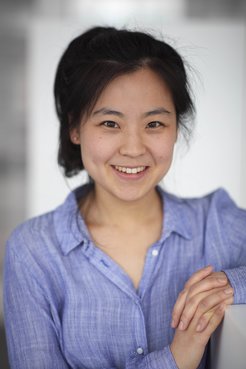
I made a short visit to laboratories at Harvard after attending a conference nearby. Despite a relatively short visit, I got to see various different laboratories working on ultracold atoms/molecules, which are in line with my field of research. In particular, I visited the ACME EDM experiment of Prof. Doyle, Erbium/Lithium quantum gas microscope labs of Prof. Greiner, and the optical tweezer experiment of Prof. Lukin.
What was the most vital scientific added value you derived from the exchange?
Although the laboratories I visited work within the field of ultracold atoms, each lab was expert on different topics. Therefore, learning different techniques or ideas developed by each lab was instructive and stimulating.
How will the exchange enrich your scientific work at MPQ?
Now I have met researchers working on different topics, it will be easier for me to contact them in the future when I need their expertise on my project. Also, I hope that the connections I have made through lab tours can lead to possible collaborations in future.
Will your stay lead to any prospective collaborations or joint publications with the visited group(s) at Harvard?
Unfortunately, there are no planned collaborations at the moment, partly since I am involved in building a new experimental set-up. However, I hope that once our machine is ready, there will be prospective collaborations on Strontium quantum gas microscope project, since both institutes are one of the leading groups of quantum gas microscope.
What did you like the most about the exchange from a personal perspective?
What I enjoyed the most were getting to know fellow graduate students and being involved in stimulating discussion with them. In particular, it was interesting to talk to graduate students who are also currently building quantum gas microscope experiment. Since we are working with different atoms and with different future projects in mind, our requirements on the setup were different. Therefore, it was interesting to explore various regimes of how we can build similar microscopes, yet focused on different usages.
Benjamin Schiffer, research visit at Harvard, 01.03.22 – 30.04.2022
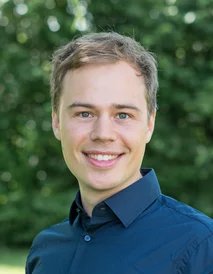
Please shortly describe the major scientific aspects of your research stay at Harvard?
Physical experiments in the group of Prof. Mikhail Lukin have achieved remarkable progress on controlling individual atoms for large arrays of neutral atoms over the last years and months. These atom arrays can be used to solve real-world optimization problems, some of which are challenging for classical computers. Potentially, the quantum devices built with neutral atoms could solve such optimization problems faster than classical computers. In my early PhD research, I investigated the preparation of ground states with adiabatic algorithms, just like in the experiment of the Lukin group.
What was the most vital scientific added value you derived from the exchange?
Related to recent experiments, there remain unsolved theoretical questions on the performance of quantum devices when solving optimization problems. Addressing some of these questions is an ongoing research effort which I am part of. However, collaborating remotely over Zoom can hardly match a personal exchange. Luckily, my PhD exchange at Harvard University allowed me discuss with the researchers in Prof. Mikhail Lukin’s group more regularly and in much greater detail. The stay did not only allow to intensify the scientific exchange, but also widened my knowledge on related scientific topics in the context of many-body physics and tensor network methods. Also, the physics department at Harvard University has many inspiring scholars and I enjoyed a great number scientific talks and discussions with the researchers there.
How will the exchange enrich your scientific work at MPQ?
For my scientific work in my PhD in the theory division at MPQ, I will benefit greatly from the PhD exchange. This is mainly due to the gained knowledge during the stay. Additionally, newly made connections to other (young) researchers will be a resource for ongoing and future collaborations.
Will your stay lead to any prospective collaborations or joint publications with the visited group(s) at Harvard?
My PhD exchange has helped greatly to strengthen the ties with the research group of of Prof. Mikhail Lukin and we will continue to collaborate on open scientific questions related to the atom array experiment. The scientific discussions during my stay lead to several new ideas that we are currently jointly investigating. Ideally, one of these ideas will lead to a joint publication in the future.
What did you like the most about the exchange from a personal perspective?
Harvard, and neighboring MIT, not only have excellent physics departments, the scientific community as a whole is also second to none when it comes to the number of stimulating talks, great scholars and various university events. Besides, the museums in Cambridge and Boston are a great Sunday pastime and New England has fantastic nature to explore, such as the lovely beaches on Cape Cod.
Lucas Hackl, research visits at Harvard, 2019
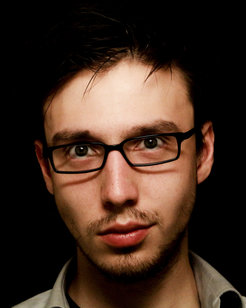
Please shortly describe the major scientific aspects of your research stay at Harvard?
The main focus of my research as MPHQ Fellow was to understand and develop methods for the efficient simulation of complex quantum systems. Here, the key challenge is that the dimension of the Hilbert space scales exponentially with the number of degrees of freedom in the system. Instead of describing the full Hilbert space, one chooses a suitable family of states (called: variational family), which captures the relevant physics well, but is not exact.
Together with Ignacio Cirac and Eugene Demler at Harvard, I started to explore the geometric structure of these variational methods and also new variational families, namely generalized Gaussian states. To benchmark our methods, we applied them to the paradigmatic Bose Hubbard model which describes cold atoms in an optical lattice. Here, we could (a) approximate the ground state, (b) compute low lying excitation energies and (c) the linear response of the system to external perturbations.
What was the most vital scientific added value you derived from the exchange?
The three visits at Harvard were stimulating and important: During my first visit, also Ignacio Cirac and Tommaso Guaita (PhD student in the project) and I had several discussions with Eugene Demler that led us to studying the properties of the so called Higg’s mode in the Bose Hubbard model. During my second visit, we already had most of the results and it was crucial to discuss their interpretation in person with Eugene Demler. Finally, my third visit gave me the opportunity to present my research at the MPHQ Spring Scientific Meeting 2019. This led to discussions with other members of the research center, including Immanuel Bloch, Mikhail Lukin and Susanne Yelin.
How will the exchange enrich your scientific work at MPQ?
The exchanges already enriched my scientific work in various ways. Meeting Eugene Demler helped me to connect the rather abstract perspective of differential geometry with the resulting implications for actual experiments. Eugene Demler is a master in drawing these connections, which is extremely relevant when developing new techniques to simulate real quantum systems. Another important aspect of the exchange was to meet graduate students and postdocs at MPHQ. In particular, my discussion with Yao Wang, an MPHQ Fellow in Eugene Demler’s group, were inspiring and will likely lead to future collaborations.
Will your stay lead to any prospective collaborations or joint publications with the visited group(s) at Harvard?
Yes, the collaboration already lead to a first paper, which is currently under review, but is already available on the arXiv as arXiv:1907.04837. Furthermore, we are continuing to collaborate to understand the geometry of variational methods and the properties of generalized Gaussian states.
What did you like the most about the exchange from a personal perspective?
Both, MPQ and Harvard provide extremely stimulating research environments. Having had the opportunity to make connections and meet people at both places will be valuable for future projects. There are two experiences that stood out for me: First, I had the chance to join a lab tour to see the wide range of quantum optics experiments conducted at Harvard. In particular, I was thrilled to see the experiment of Markus Greiner (see photo below) where his group was able to measure entanglement entropies by looking at the statistics of measurement outcomes. As I had worked on the theoretical concept during a large of my PhD, it was exciting for me to see how the abstract concept is now successfully studied in reality. Second, I also enjoyed my time in the wonderful city of Cambridge with several visits to Boston: My visits were set in February/March, April and May 2019, which allowed me to see the transformation from winter (with a lot of snow!) into a beautiful spring.






